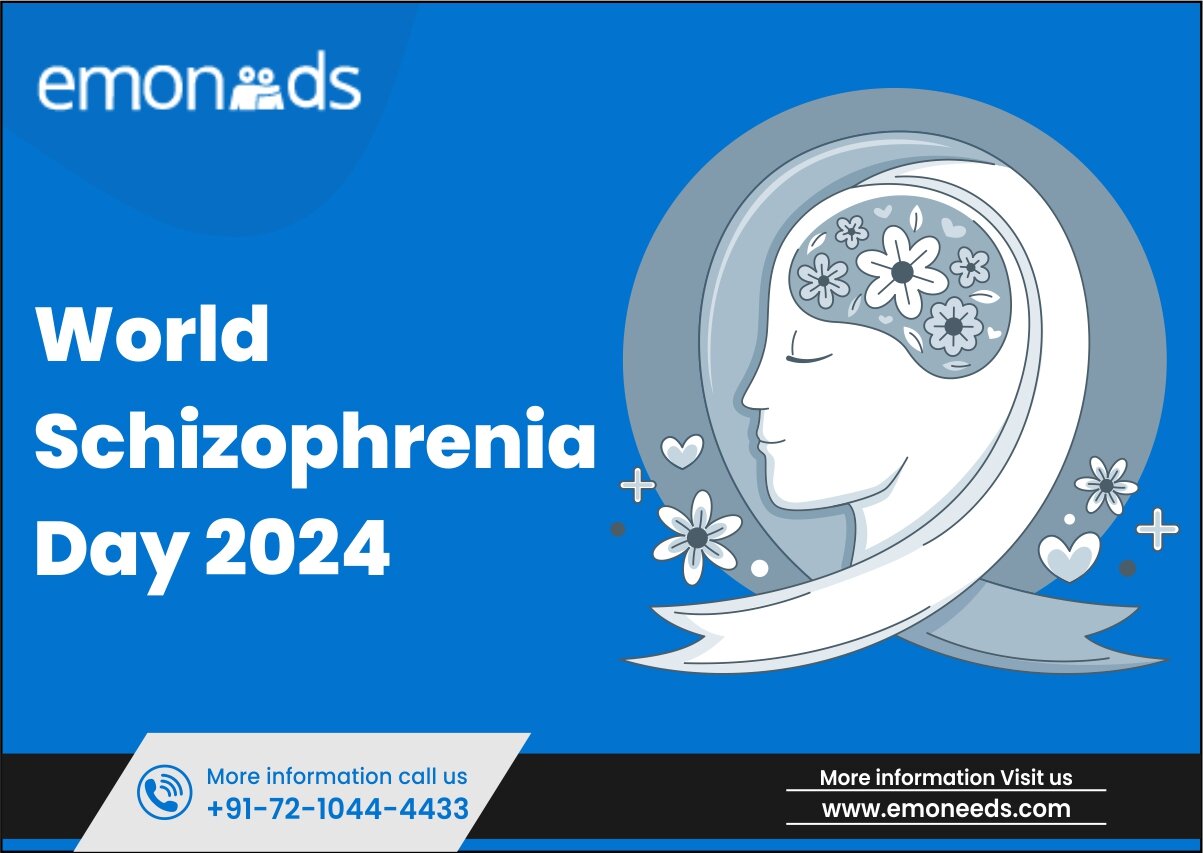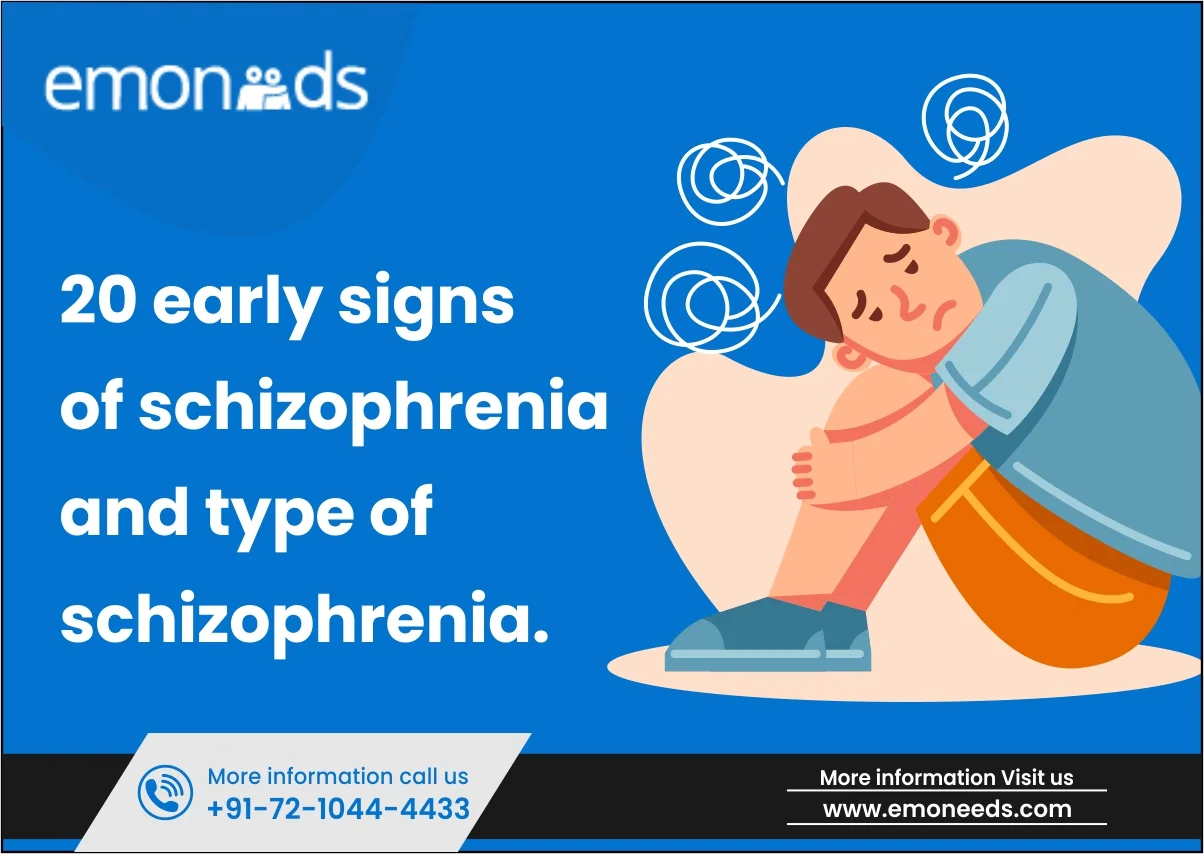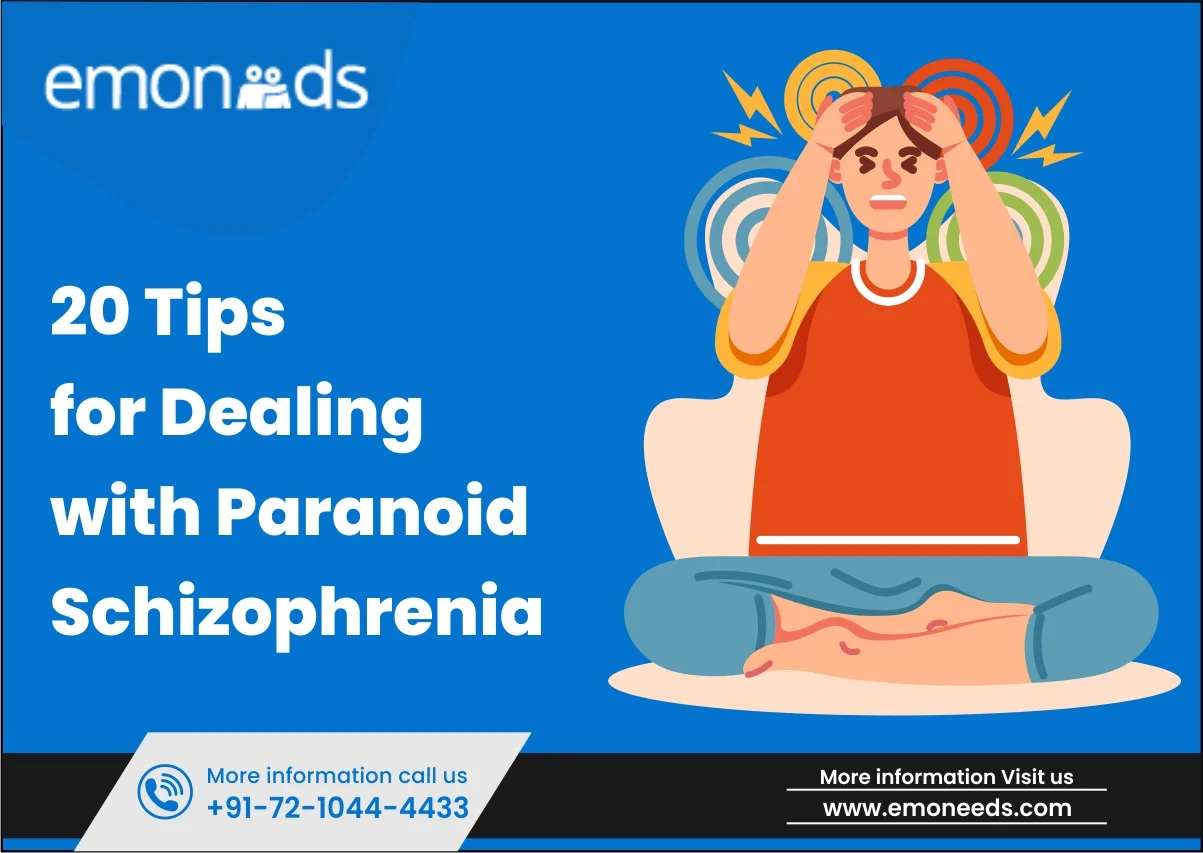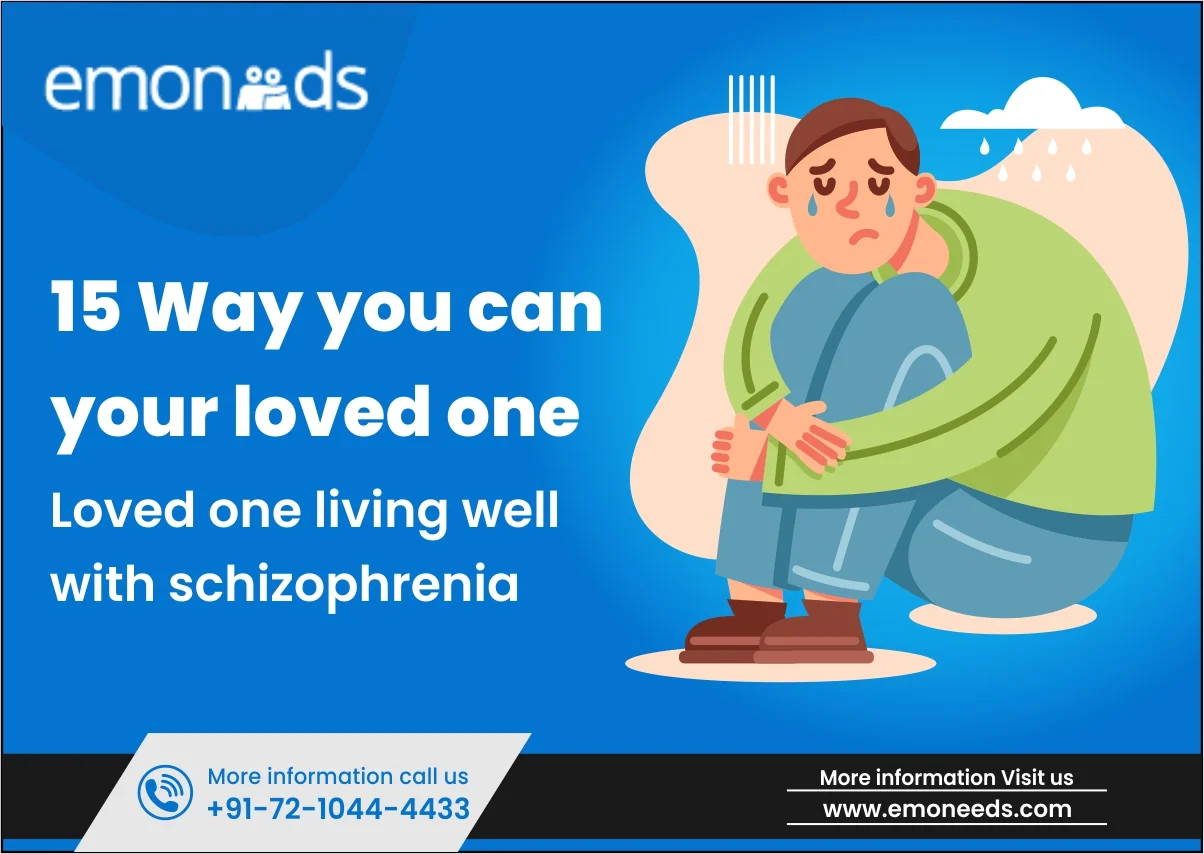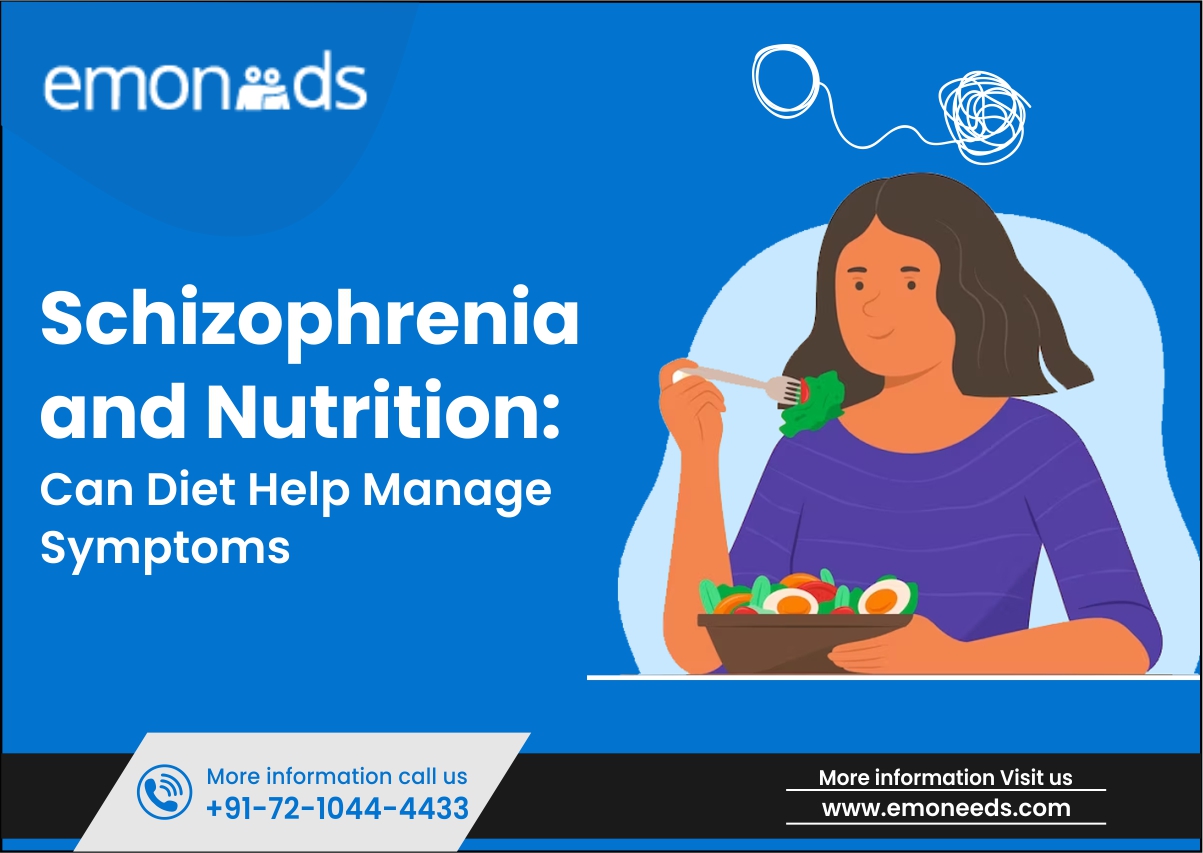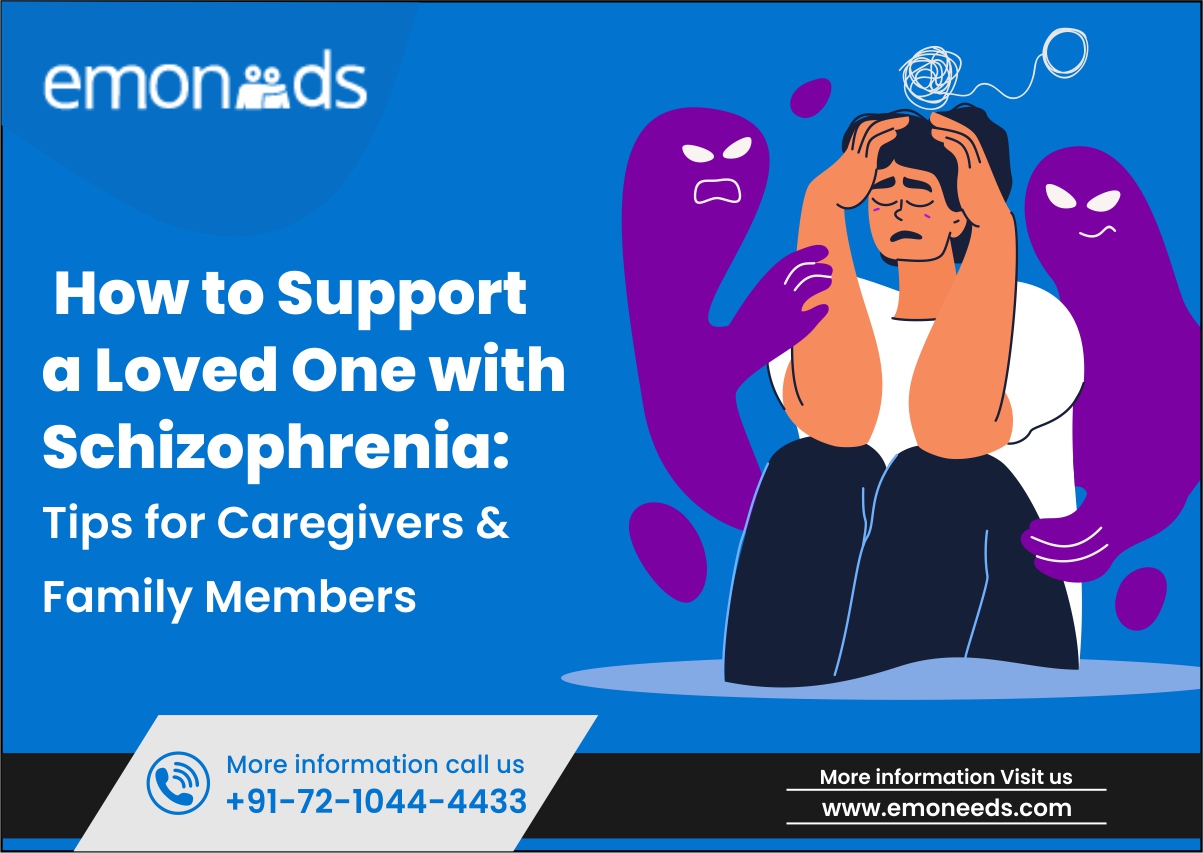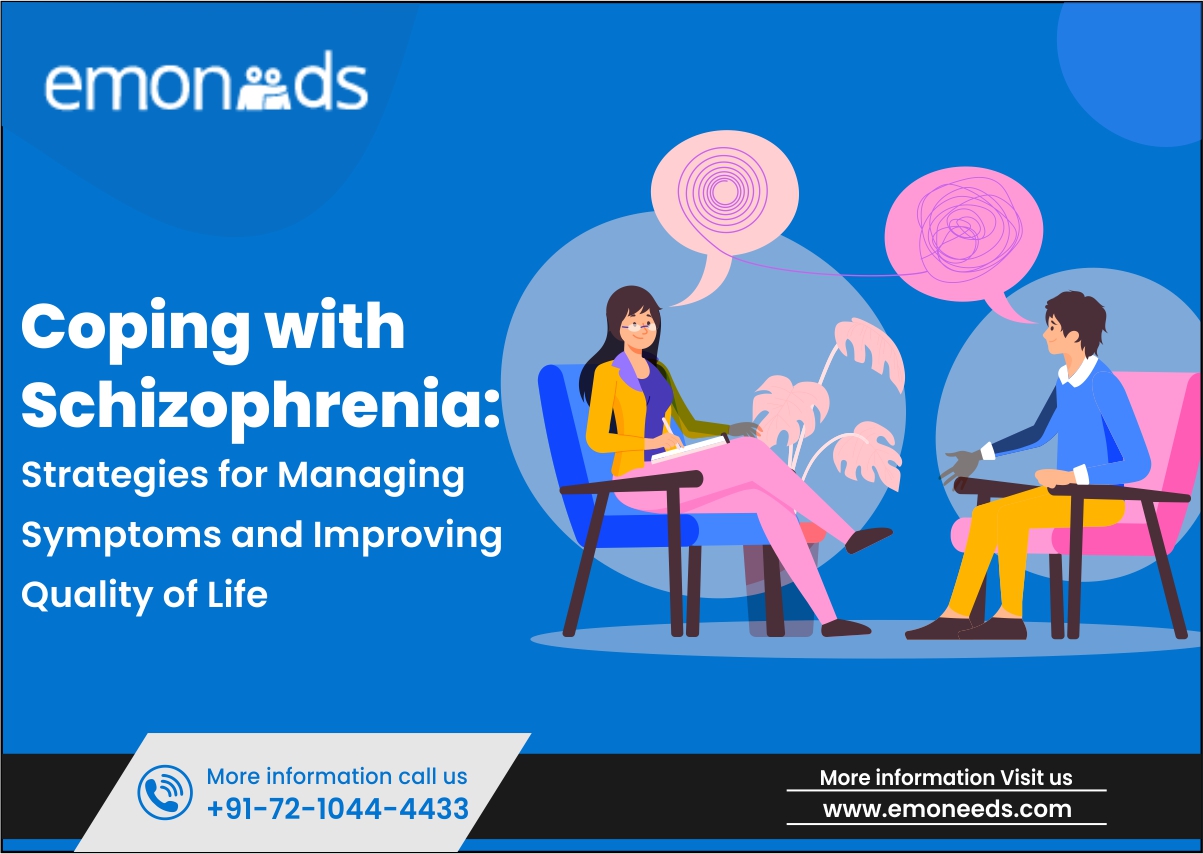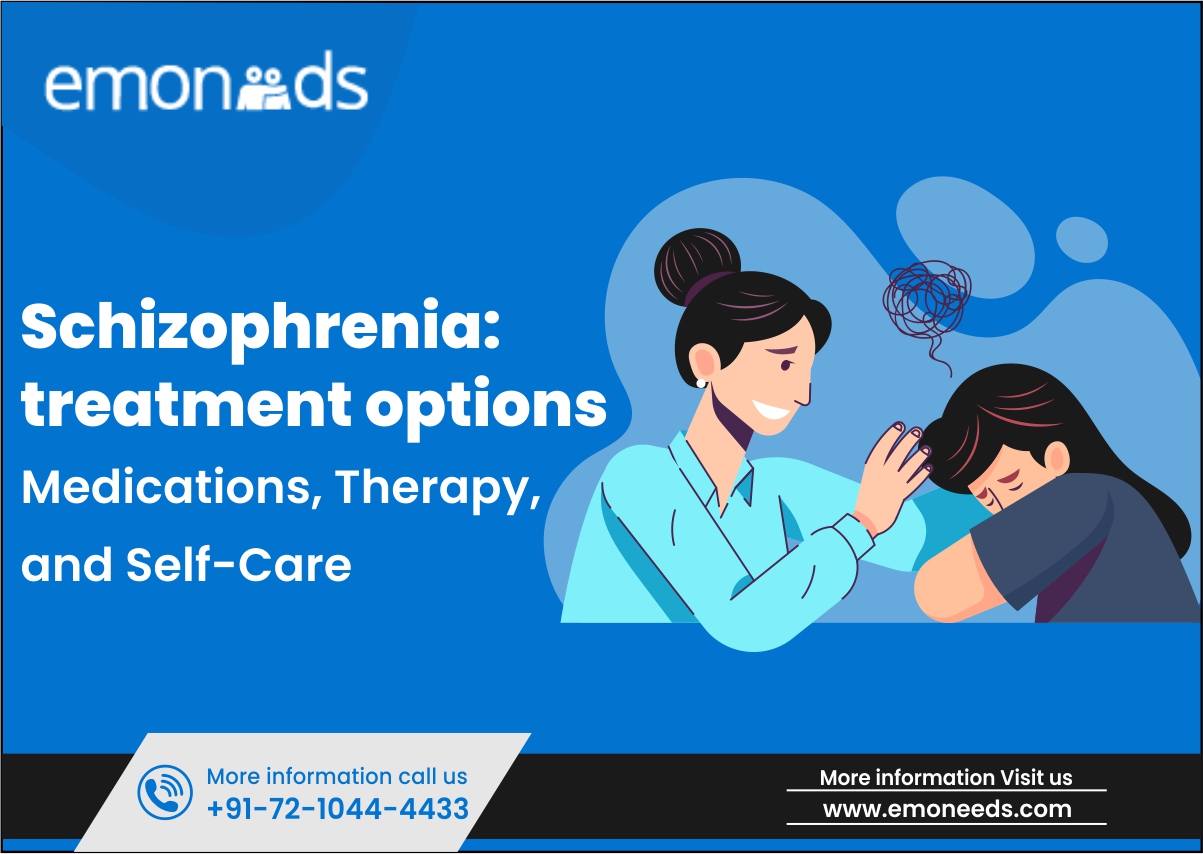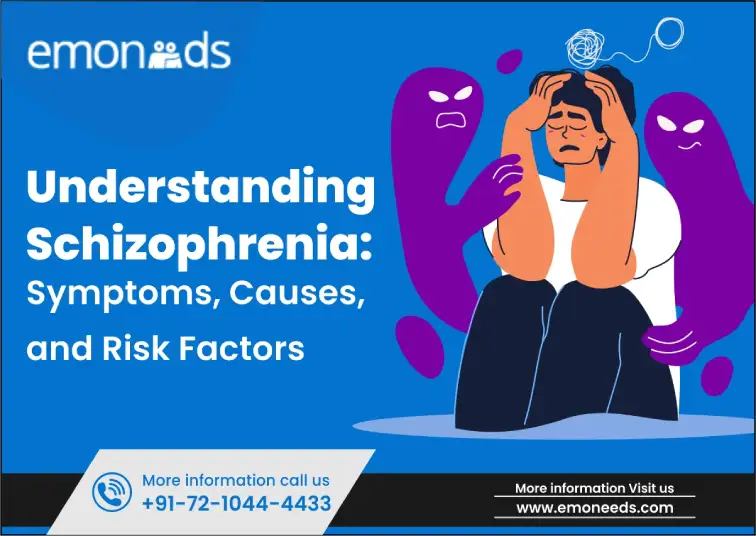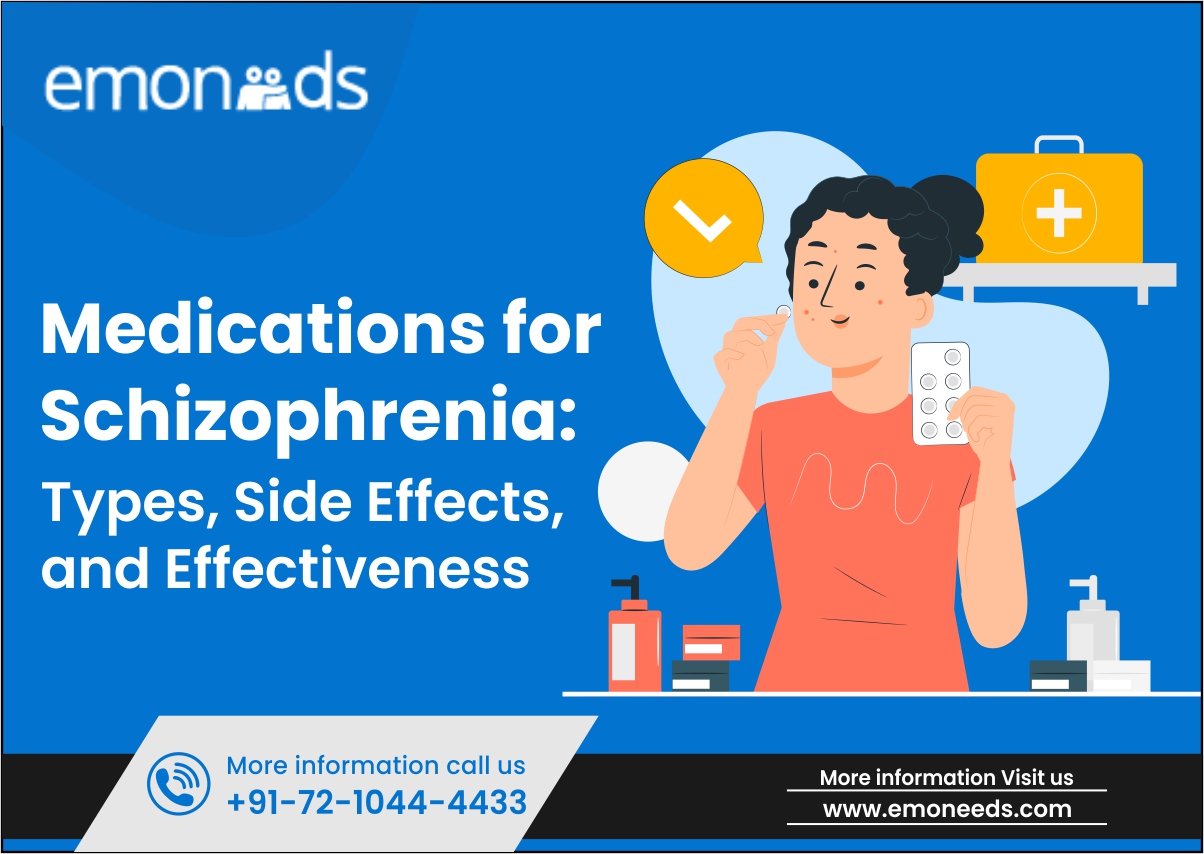
- June 8, 2023
- Saloni Kabra
- 0
Living with schizophrenia can be overwhelming, but with the right treatment, individuals can manage their symptoms and improve their quality of life. Medications play a crucial role in the treatment of schizophrenia, helping to reduce symptoms and promote stability. At Emoneeds, we understand the importance of comprehensive information and support when it comes to schizophrenia medications.
In this blog, we will explore the different types of medications used to treat schizophrenia, their potential side effects, and their effectiveness in managing the condition.
Table of Contents
ToggleUnderstanding Schizophrenia Medications
Schizophrenia is a complex disorder that affects brain chemistry. Medications help regulate these chemicals and alleviate symptoms. Antipsychotic medications are commonly used and classified into two categories: first-generation (typical) and second-generation (atypical) antipsychotics. Understanding the characteristics and differences between these classes can help individuals and their loved ones navigate the treatment landscape more effectively.
First-Generation (Typical) Antipsychotics
First-generation antipsychotics have been used for several decades in the treatment of schizophrenia. These medications primarily target specific receptors in the brain, particularly dopamine receptors. By blocking the excessive activity of dopamine, they help reduce positive symptoms such as hallucinations and delusions.
Second-Generation (Atypical) Antipsychotics
Second-generation antipsychotics, also known as atypical antipsychotics, have emerged as an alternative and often preferred treatment option. These medications not only target dopamine receptors but also affect other neurotransmitters in the brain, such as serotonin. This broader impact allows for a more comprehensive reduction of symptoms.
Second-generation antipsychotics offer several advantages, including a lower risk of movement disorders compared to first-generation antipsychotics. Additionally, they may provide benefits in addressing negative symptoms and cognitive difficulties commonly associated with schizophrenia.
Side Effects of Schizophrenia Medications
When it comes to managing schizophrenia, medications are an integral part of the treatment plan. However, it’s essential to acknowledge that these medications can come with side effects. Understanding and effectively managing these potential side effects are crucial for ensuring optimal treatment outcomes and overall well-being.
Our experts at Emoneeds recognize the significance of addressing side effects and provide individuals with the necessary tools and support to navigate this aspect of their treatment journey. Here are some common side effects associated with schizophrenia medications:
- Weight Gain: Some medications used to manage schizophrenia symptoms can lead to weight gain. This can be distressing for individuals, impacting self-esteem and overall physical health.
- Dry Mouth: Another common side effect is experiencing a dry sensation in the mouth. Staying hydrated and sipping water throughout the day can help alleviate this discomfort. Chewing sugarless gum or using saliva substitutes may also provide relief.
- Blurred Vision: Certain medications may cause temporary blurred vision or difficulty focusing. If this occurs, it’s advisable to avoid activities that require clear vision until it subsides. If the problem persists or worsens, consulting your healthcare provider is important.
- Constipation: Some individuals may experience difficulty passing stools or infrequent bowel movements. Including fiber-rich foods in your diet, drinking plenty of water, and staying physically active can help alleviate constipation. If the issue persists, it’s important to consult your healthcare provider.
- Sedation: Certain antipsychotic medications may cause sedation or drowsiness, affecting energy levels and daily functioning. Emoneeds provides strategies for managing sedation, such as adjusting medication timing and incorporating relaxation techniques into daily routines.
- Movement Disorders: Movement disorders, such as stiffness, tremors, and restlessness, can occur as side effects of schizophrenia medications. These can significantly impact an individual’s quality of life.
- Metabolic Changes: Schizophrenia medications may influence metabolic processes, leading to changes in blood sugar levels, cholesterol levels, and body fat distribution.
Emoneeds recognizes that not all individuals will experience the same side effects, and the impact can vary from person to person. It’s important to remember that the benefits of medication often outweigh the potential risks.
Medication Adherence
Medication adherence is crucial for managing schizophrenia effectively. However, individuals with schizophrenia may face challenges in consistently taking their medication. Emoneeds understand these difficulties and provide support and resources to improve adherence. We emphasize the importance of open communication with healthcare professionals to address concerns and develop strategies for maintaining consistent medication use. Our team is here to offer guidance, tips, and reminders to help individuals and their loved ones stay on track.
Personalized Medication Plans
Each person’s experience with schizophrenia is unique, and so are their medication needs. Emoneeds recognizes the importance of personalized medication plans tailored to individual circumstances. Our platform connects individuals with healthcare professionals who specialize in schizophrenia treatment.
Through a collaborative approach, these professionals develop personalized medication plans that consider factors such as symptom severity, medical history, and individual preferences. Personalized plans help optimize treatment outcomes, improve symptom management, and minimize side effects.
Effectiveness of Schizophrenia Medications
Determining the effectiveness of medications for schizophrenia is a complex and individualized process. While medications are a cornerstone of schizophrenia treatment, it’s important to recognize that their effectiveness can vary from person to person.
Effectiveness is often evaluated based on the reduction of symptoms, improvement in overall functioning, and the individual’s quality of life. It’s crucial to have realistic expectations, as medications may not completely eliminate all symptoms but can significantly reduce their intensity and frequency.
Regular communication with healthcare providers is essential to monitor progress and make necessary adjustments to the treatment plan. It’s important to provide feedback on any changes in symptoms or side effects to ensure the most effective medication regimen.
It’s worth noting that medication effectiveness can be influenced by various factors, including adherence to the prescribed regimen, lifestyle choices, and the presence of other health conditions. Maintaining open and honest communication with healthcare providers, and sharing concerns and preferences, can help tailor the treatment approach to individual needs.
Complementary Therapies and Medications
Medication is just one component of schizophrenia treatment. Complementary therapies, such as cognitive-behavioral therapy (CBT), family therapy, and psychosocial interventions, can greatly enhance overall well-being. Complementary therapies, including psychosocial interventions, lifestyle modifications, and various therapeutic approaches, can greatly enhance overall well-being and contribute to a holistic treatment approach.
Complementary therapies encompass a wide range of approaches that work in conjunction with medications to address the complex nature of schizophrenia. Cognitive-behavioral therapy (CBT) focuses on identifying and challenging negative thought patterns and behaviors, promoting healthier coping mechanisms and improved emotional well-being. Family therapy involves the active participation of family members, fostering communication, understanding, and support within the family unit.
Psychosocial interventions encompass various techniques aimed at enhancing social skills, improving self-esteem, and promoting independence. These complementary therapies offer additional tools and strategies that can significantly contribute to an individual’s recovery and overall quality of life. Emoneeds recognizes the value of these complementary therapies and provides individuals with the information they need to make informed decisions about their treatment journey.
Seeking Professional Guidance
When it comes to medication management, seeking professional guidance is vital. Emoneeds assists individuals in finding qualified healthcare professionals specializing in schizophrenia treatment. These professionals have extensive knowledge and experience in prescribing and monitoring medications for schizophrenia.
By working closely with them, individuals can receive personalized guidance, regular evaluations, and adjustments to their medication plan as needed. We believe in the power of collaboration and the value of building a trusting relationship with healthcare providers.
Balancing Benefits and Risks
Choosing the right medication involves considering the balance between benefits and risks. Emoneeds prioritizes informed decision-making and empowers individuals to be active participants in their treatment journey. Our platform provides comprehensive information on medication options, including their potential benefits, side effects, and effectiveness. We encourage individuals to engage in open discussions with their healthcare providers, ask questions, and express any concerns to ensure they make the best choices for their well-being.
Conclusion
Medications are an essential component of schizophrenia treatment, helping individuals manage symptoms and improve their quality of life. At Emoneeds, we understand the complexities surrounding schizophrenia medications and the importance of individualized care. By providing comprehensive information, support, and connections to healthcare professionals, we strive to empower individuals and their families to make informed decisions about their treatment. Through a holistic approach, we aim to enhance understanding, reduce stigma, and foster a community that supports and uplifts those affected by schizophrenia.



